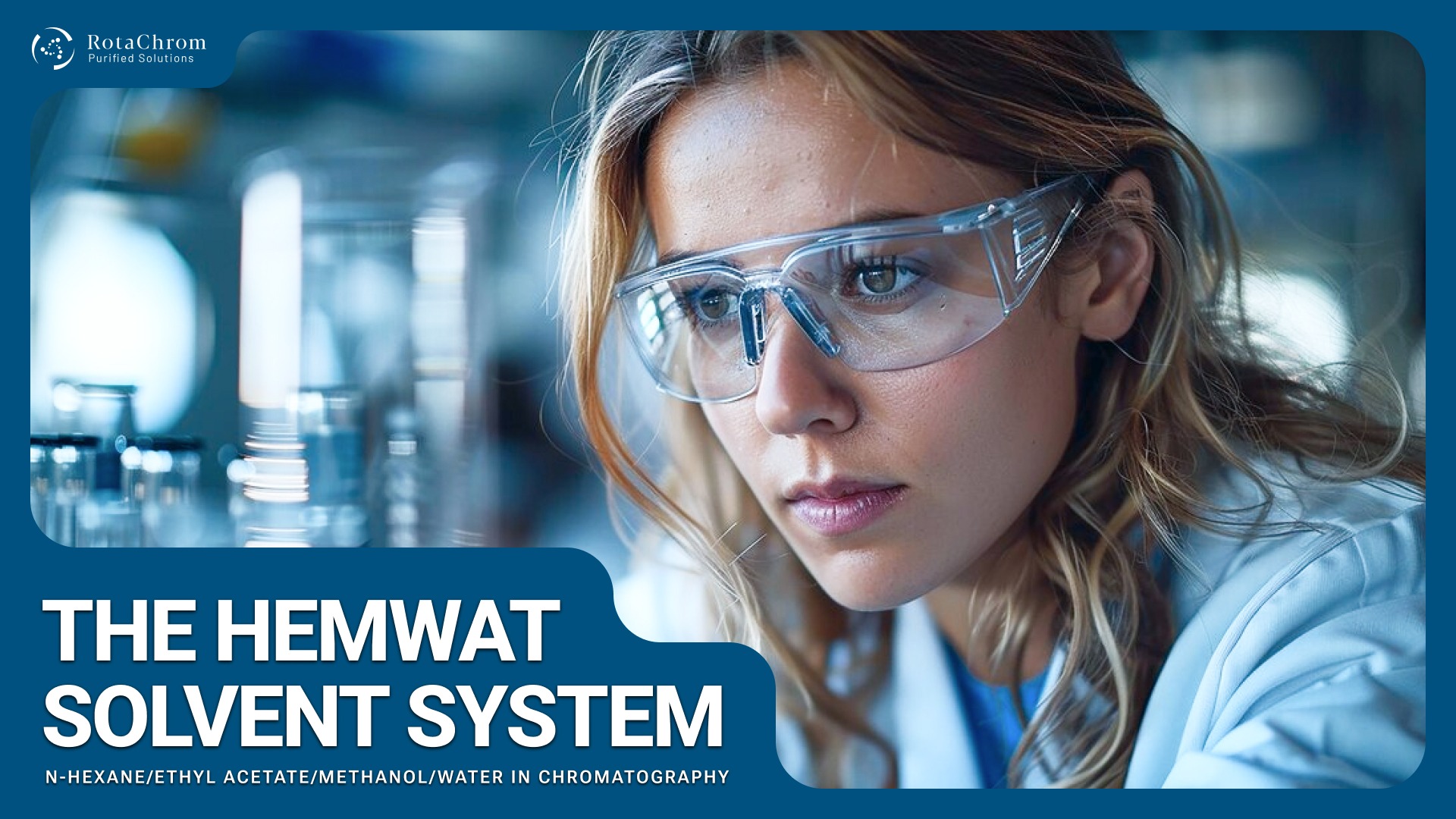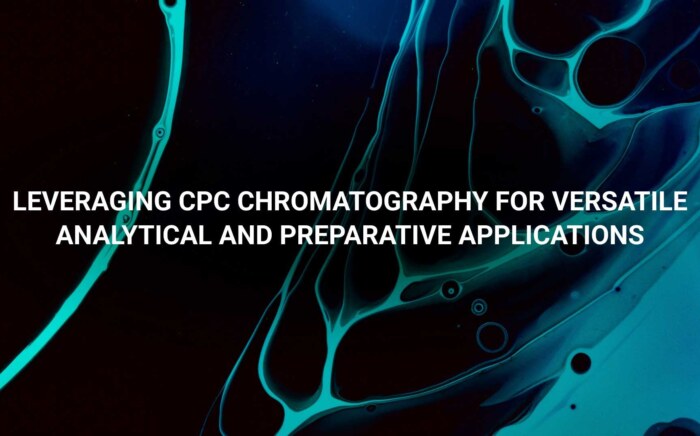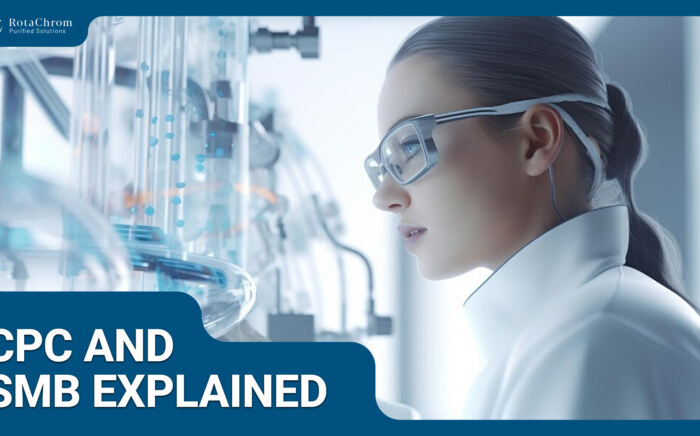Increasing separation efficiency by pH adjustment in Centrifugal Partition Chromatography
NewsCentrifugal partition chromatography (CPC) relies heavily on the choice of solvent systems to achieve effective separation of complex mixtures. One such solvent system that has proven to be highly effective is the n-hexane/ethyl acetate/methanol/water system. (HEMWat) This combination offers unique properties that enhance the efficiency and precision of centrifugal partition chromatographic separations, making it a popular choice in various applications. Other common CPC solvent systems include the ARIZONA solvent system, comprised of n-heptane/ethyl acetate/methanol/water), which we will talk about another time. In this blog post, however, we will delve into the composition, benefits, and applications of the n-hexane/ethyl acetate/methanol/water, or HEMWat solvent system in CPC.
Understanding the Solvent System
The n-hexane/ethyl acetate/methanol/water (HEMWat) solvent system leverages the distinct polarities and interactions of its components to achieve optimal separation of analytes:
- n-Hexane: A non-polar solvent, n-hexane is hydrophobic and effectively dissolves non-polar compounds. Its low polarity makes it ideal for separating non-polar or hydrophobic molecules.
- Ethyl acetate: A polar aprotic solvent. It dissolves most of the polar organic compounds. Besides being widely used in research laboratories and indrustries, its application in pharmaceutical and nutrition industry is favoured by being eco-friendly and relatively cheap.
- Methanol: A polar solvent, has the important ability to interact with both polar and non-polar molecules. Its moderate polarity allows it to act as a bridge between the non-polar n-hexane and polar water.
- Water: The most polar component, water can dissolve highly polar substances and can influence the solubility and partitioning behavior of compounds in the solvent system.
When combined, these solvents create a biphasic system where the immiscibility of n-hexane with the methanol/water mixture enables effective liquid-liquid partitioning, a key principle in centrifugal partition chromatography (CPC).
Benefits of the n-hexane/ethyl acetate/methanol/water (HEMWat) solvent system
- Enhanced Separation Efficiency: The differing polarities of each components allow for a wide range of analytes to be separated based on their partition coefficients. This system is particularly effective for compounds with varying polarities.
- Versatility: The HEMWat system can be adjusted in terms of solvent ratios to fine-tune the polarity of the mobile and stationary phases, optimizing the separation process for specific compounds.
- Reduced Solvent Consumption: By employing a biphasic system, this solvent combination can minimize the overall volume of solvents required, contributing to more sustainable chromatographic practices, considering regulatory, financial and environmental factors.
- Improved Selectivity: The ability to adjust the polarity and composition of the solvent system enhances selectivity, allowing for the precise separation of target compounds from complex mixtures.
Optimizing the Solvent System
To maximize the effectiveness of the n-hexane/ethyl acetate/methanol/water solvent system, careful consideration must be given to the following parameters:
- Solvent Ratios: Adjusting carefully the proportions of n-hexane, ethyl acetate, methanol, and water can fine-tune the polarity of the system, optimizing it for specific separations.
- pH Adjustments: Modifying the pH of the aqueous phase can influence the ionization state of analytes, affecting their partition coefficients and separation efficiency.
- Additives: Different organic and inorganic salts can help to maintain the stability of aqueous media.
- Temperature Control: Temperature variations can impact the solubility and partitioning behavior of compounds, and maintaining a consistent temperature is crucial for reproducible results.
Diastereomere epoxide purification with centrifugal partition chromatography
This solvent mixture has proven to be exceptionally effective for the separation of isomers and chiral compounds. In one of our detailed studies, we successfully separated the epoxide isomers of nebivolol.
The efficacy of the solvent mixture can be attributed to its optimal balance of polar and non-polar characteristics, which facilitated the precise separation process. Consequently, we were able to achieve an impressive 99% purity of the isolated compounds, underscoring the suitability of this solvent system for complex chemical separations.
Conclusion
The n-hexane/methanol/water (HEMWat) solvent system stands out as a versatile and effective choice in chromatography, offering enhanced separation efficiency, reduced solvent consumption, and improved selectivity. Its application in techniques such as CPC, as well as in extraction and purification processes, underscores its significance in achieving precise and efficient separations. The solvent system can be used to purify pharmaceutical compounds, such as nebivolol, but can also be used to purify a variety of natural and botanical extracts, such as mother liquor and CBD distillates or crudes. By understanding and optimizing this solvent system, researchers and industry professionals can harness its full potential, advancing their chromatographic endeavors and contributing to more sustainable practices.
To learn more about CPC and see free tips and best practices for solvent systems and uses, visit our applications page.



